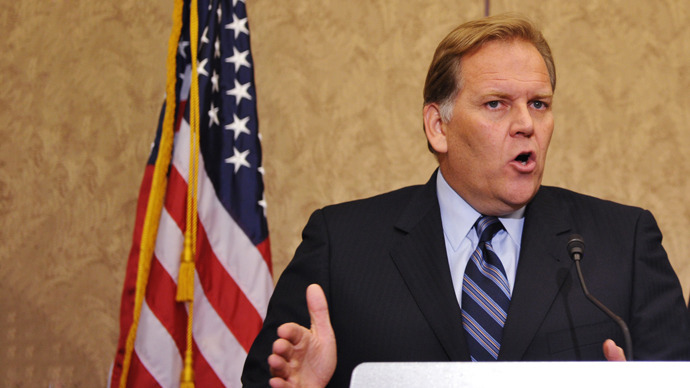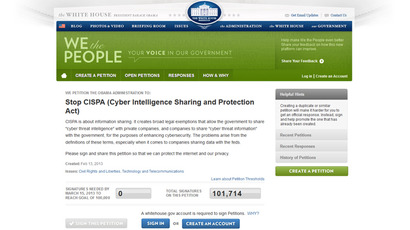CISPA sponsor tweets, then deletes, link to support's financial incentives

Michigan Congressman Mike Rogers, a co-sponsor of the controversial online security bill CISPA, deleted a post from his official Twitter account linking to a website outlining how much funding each US politician has received from pro-CISPA lobby groups.
Rogers has been a vocal supporter of the Cyber Intelligence Security Protection Act (CISPA), which critics say will effectively eliminate privacy on the Internet under the guise of enhancing cybersecurity.
The congressman retweeted a message from MapLight, an organization billing itself as a “nonpartisan research organization that reveals money’s influence on politics,” that linked to an article revealing that the House Intelligence Committee - which Rogers currently chairs - “received 15 times more from pro-CISPA groups than anti-CISPA groups.” The tweet was preserved on Politwoops, a website that logs deleted messages from politicians.
According to the MapLight article, Rogers has been on the receiving end of donations totaling $214,750 from interest groups backing CISPA. He deleted the retweet 23 minutes after posting it.

It only gets worse for the congressman, though, as digital activists made him an online punchline on Friday for his frequent use of the Twitter hashtag #CISPAalert. Most likely unknown to Rogers was the fact that each time the phrase is included in a tweet, the domain registrar Namecheap donates one dollar to the Electronic Frontier Foundation, a group dedicated to stopping the legislation.
CISPA has come under fire from privacy advocates as well as Internet giants including Craigslist and Reddit for the powers it would provide government officials and corporations. The bill would allow companies like Microsoft, Facebook, Verizon and many others to share information about web users without any legal obstruction when their networks are under attack. The government could then prosecute individuals based on the personal information passed on.
Critics of the bill have complained that its broad language would virtually legalize surveillance, while proponents have deemed it necessary in the battle to stop hackers. The legislation failed to pass through Congress last year but will be voted on in April.
“The bill would allow companies to share private user information with the government in ways that are currently illegal, and provide legal immunity to companies that share information for vaguely defined ‘national security’ purposes,” said the Internet Defense League in a Tuesday statement.
Earlier this week Martin Libicki, a senior management scientist at the RAND Corporation, warned the House Homeland Security Committee to be wary of the line between realistic projections regarding cybersecurity and fear-mongering.
“The more emphasis on the pain from a cyberattack, the
greater the temptation to others to induce such pain — either to
put fear into this country or goad it into a reaction that rebounds
to their benefit,” he said. “Conversely, fostering the
impression that a great country can bear the pain of cyberattacks,
keep calm and carry on reduces such temptation.”















